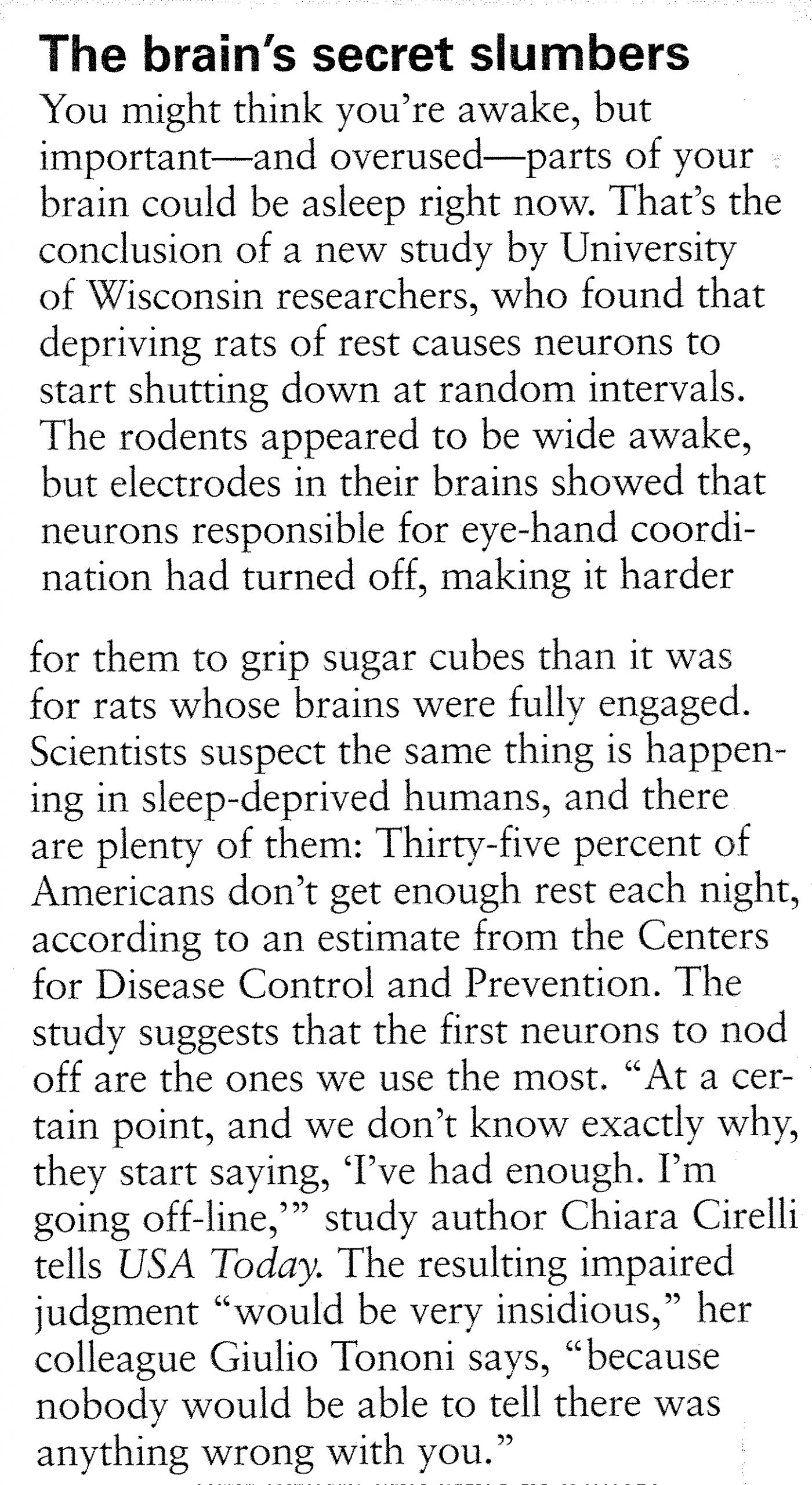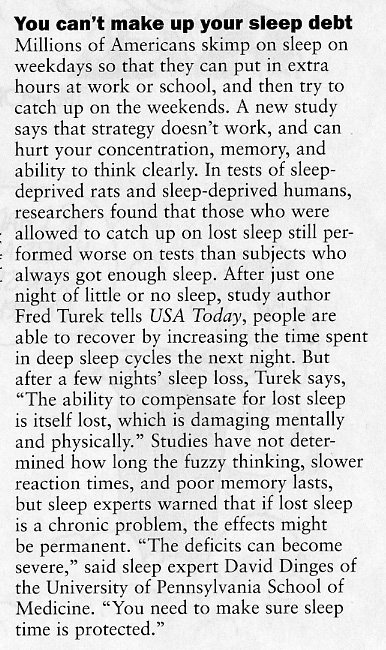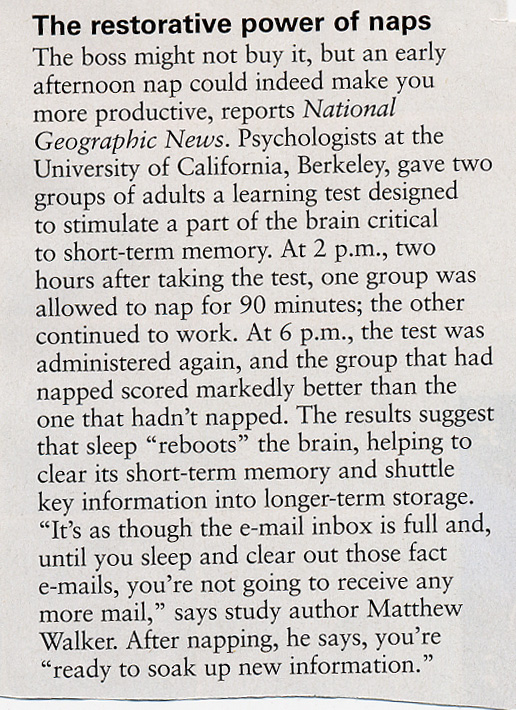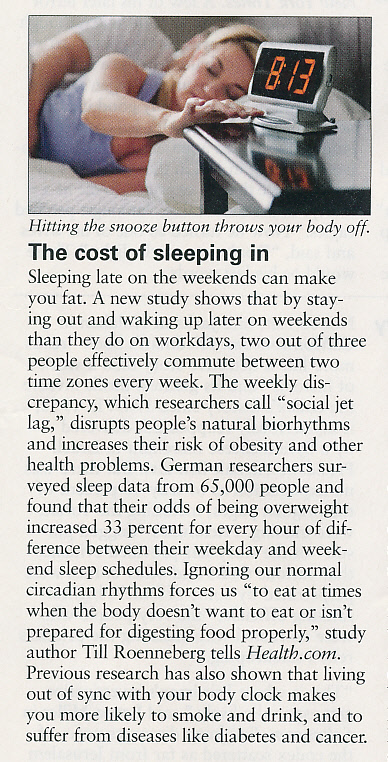|
American Psychological Association article: After sleep deprivation, as activity wanes in prefrontal and temporal lobe areas, other brain areas pick up the slack, new research indicates. |
|
|
Napping, getting less sleep, and the physical effects of less sleep from Dr. Oz. |
Rotational napping — when parts of your brain put itself to sleep, and other parts (less capable) take over. Dolphins are great at this; people are not.
When you’re sleep deprived, you often don’t feel as if you’re tired, especially if you’ve made it over “the hump,” or have had some coffee. And, your physical, mental, and emotional states are still not up to par. Your brain works to restore functioning/capacity by putting parts of itself to sleep. When that part is responsible for tying your shoe (that kind of motor action), the consequence of a shoelace falling apart isn’t very high. When you’re dealing with more risky endeavors/skills, or are in a meaningful and/or intricate verbal/emotional conversation, having the relative skilled parts of the brain asleep will prove more challenging.




